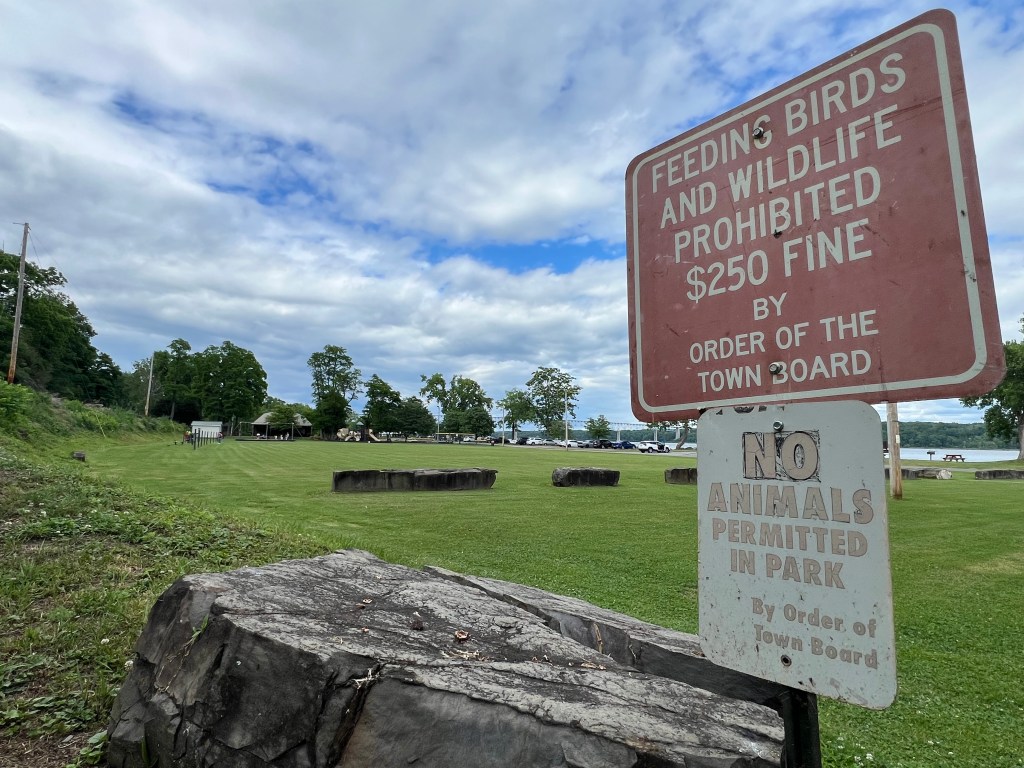
TOWN OF ULSTER, N.Y. — Town residents expressed support for lifting a ban on dogs at town parks during a public hearing last week.
“Let the dogs in,” resident Laura Hartmann said. “Our Democratic Committee, we’ve had the SPCA down (at Robert Post Park) and we’ve helped get a lot of dogs adopted through that.”
Under the proposed law, dogs will need to be on leashes that are no longer than 15 feet and under the control of a person at all times. The owner will also be required to immediately clean up dog waste. A previous version of the law incorrectly stated the maximum leash length at 15 inches.
Hartmann recommended that the town invest in making bags available for dog owners to use for cleaning up after their dogs.
“Having the trash cans there and available to throw their bags in is really … helpful in encouraging them to do it,” she said.
The law will be in place for all parks, playgrounds, picnic areas, sports fields and town beaches.
Deputy Supervisor Clayton VanKleeck said the change was prompted by uncertainty about whether owners were legitimately declaring dogs to be service animals or simply saying they were qualified because few people understand how to apply the state law.
“Right now at the parks, we have a ‘no dog’ rule,” he said. “But people are allowed to have service dogs. … So in reviewing this, we felt it best to make a law that allows for dogs to get into parks but to be on a leash and to follow these rules as far as cleanup.”
Guidance from the state Attorney General’s office states that when confronted with questions about the legitimate need for a service animal a public accommodation provider cannot ask about the nature or extent of a person’s disability and cannot ask for proof that a dog is certified. However, there are two questions that can be asked.
“They may ask if the animal is required because of a disability and what work the animal has been trained to perform,” state officials wrote.
The guidelines state that a “service animal as any dog that is individually trained to do work or perform tasks for the benefit of an individual with a disability, including a physical, sensory, psychiatric, intellectual, or other mental disability.”
This post was originally published on this site be sure to check out more of their content.












































